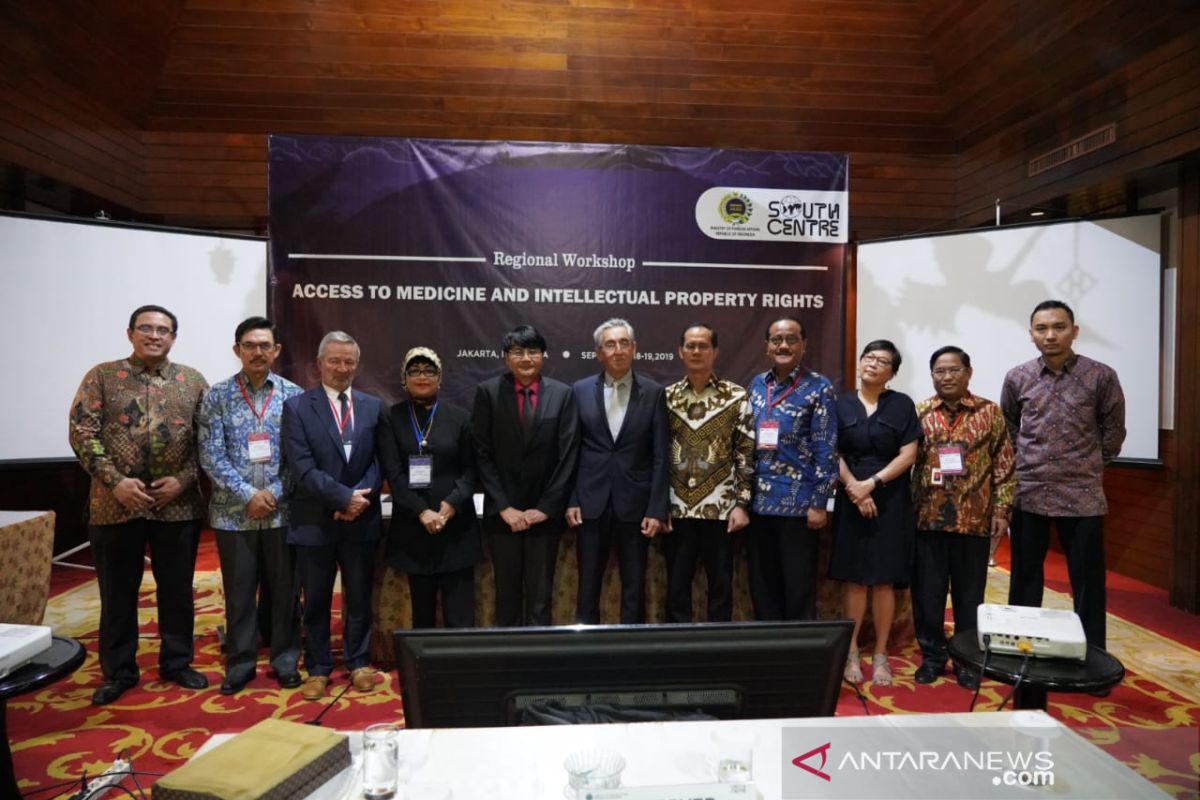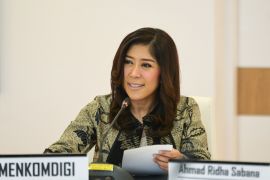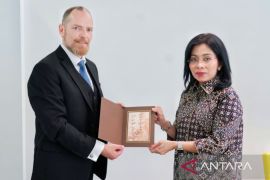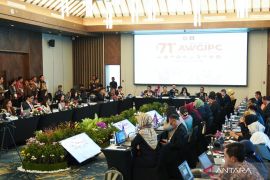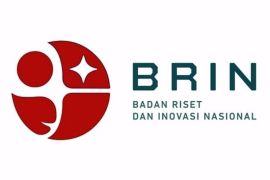Competition in the healthcare industry is currently getting cut-throat. Globalization and technological developments are increasingly affecting growth of the healthcare industry.
However, despite a steady increase in production and innovation in the global healthcare industry, not all health products and services, especially medicines, are equally accessible by all communities worldwide.
Medicine has been looked upon as a weapon for successfully treating and preventing several ailments. To this end, access to medicines has been perceived as a basic human right.
On the other hand, the World Health Organization (WHO) noted that over two billion people across the world do not have adequate access to essential medicines.
"The lack of access to medicines is one of the most complex and intriguing problems that stand in the way of better health services to all," Ministry of Foreign Affairs' Head of Policy Analysis and Development Agency, Siswo Pramono, stated at a Regional Workshop on Access to Medicines and Intellectual Property Rights (IPR) held in Jakarta on September 18-19, 2019.
The workshop was held by Indonesia's Ministry of Foreign Affairs, in collaboration with South Centre, an intergovernmental think tank of developing nations, with currently 54 developing country member states from Africa, Asia, and the Pacific, as well as Latin America and the Caribbean.
Related news: Indonesia, South Centre harmonize access to medicines, IPR
IPR protection
At the opening of the workshop, Pramono affirmed that one of the issues pertaining to inequalities in access to medicines and vaccines is the mechanism of patents used as an instrument for intellectual property rights (IPR) protection.
"One of the challenges in the path to realizing equal access to medicines is their affordability for all. It is affected by the created policy stipulated by the agreement on Trade-Related Intellectual Property Rights, known as TRIPs, and the global context of the pharmaceutical industry that is bound by the use of patents as an instrument of IPR protection," he expounded.
In the global context, pharmaceutical products have been included as objects protected by patents as stipulated by the agreement on Trade-Related Intellectual Property Rights (TRIPs). This issue has triggered a protracted debate between developed and developing nations.
Concerns rode high over this condition creating difficulties for people in developing nations in accessing low-cost medicines, based on the fact that most patent holders of pharmaceutical products are producers from developed nations.
Pursuant to the TRIPs agreement, several developing nations had to modify their patent laws to apply patent protection for pharmaceutical products for a minimum two-decade term.
It has impinged upon the freedom to operate for pharmaceutical industries in developing nations that predominantly manufacture generic medicines that are considerably more affordable for patients than patented medicines.
"This mechanism (TRIPs) has somewhat become the barrier, especially for developing countries to fulfill the needs of affordable medicines for its people. Most patent holders of pharmaceutical products are from most advanced countries," Pramono pointed out.
The IPR protection in pharmaceutical industries can create exclusive rights that offer the owner the possibility to exclusively produce, set the price, and commercialize a particular medicine, thus, such acts are equal to "legal right to monopoly," Executive Director of South Centre Carlos M. Correa stated.
"The case is that patent protection creates a sort of legal monopoly in determining medicine prices. The patent may lead to high prices, thereby denying people the access to medicines at affordable prices," Correa pointed out.
He further drew attention to the fact that most new medicines are developed in industrialized and developed nations, including the United States, Japan, and some European countries. In the meantime, some developing nations have begun producing their own pharmaceutical products, though it is not yet as significant as in the big industrialized countries.
"Hence, this create an asymmetry, as some medicines in some countries are set at steep prices by creative industrialized countries, and they are subject to patent protection in developing countries," he expounded.
"Hence, in such a situation, it is very difficult for the government of developing countries to ensure access to medicines for the people, particularly access to some new medicines that are set at a very high price," Correa stated.
He cautioned that such a condition may create tensions between the need to protect IPR and to get access to medicines.
Following up on the debate, governments from developing nations urged the World Trade Organization (WTO) to pay more attention to the issues. Governments then finally concurred on a resolution that bolster the ties between TRIPs and public health, known as the Doha Declaration on the TRIPs Agreement and Public Health.
The Doha Declaration eyed the resolution of public health problems of developing and underdeveloped nations induced by the implementation of drug patent protection.
Furthermore, the Doha Declaration also assisted developing countries to interpret the protective articles of TRIPs, such as mandatory licenses and parallel imports.
Flexibilities in the TRIPs Agreement -- reaffirmed by the Doha Declaration -- offer policy space for governments to adopt measures to advance public policy modulated in accordance with the national needs and priorities, especially in connection with the access to medicines required to realize the basic human right to health.
Ensuring access
Considering TRIPs entail the relation between IPR and access to medicines, it is crucial for governments -- particularly those of developing and underdeveloped nations -- to ensure access to medicines at affordable prices as against patent protection that affects the price of medicines.
Correa reiterated the significance of the way in which IPR protection in the pharmaceutical industry is implemented in a country since it will determine whether it can have a strong pharmaceutical industry that can offer low-cost generic medicines and whether patients can actually avail medicines they require.
"It is very important to ensure that the medicine can be produced by the local industry, and it can be developed in the country -- also at the regional level -- in order to provide low-cost medicines. Thus, people can get treatment for whatever diseases they are ailing from," he noted.
Furthermore, the substantial effect that TRIPs and patent had on competition and price of medicines should be taken into account. It is important to optimize the use of any flexibility on TRIPs-related policy to improve the implementation of public healthcare policy.
The Government of Indonesia, at the regional workshop, offered some measures that can be explored to ensure policy coherence in the areas of trade, intellectual property, and public health for promoting the optimal utilization of the TRIPs flexibilities for access to medicines.
Siswo Pramono from Indonesia's MoFA highlighted one of the measures of facilitating developing nations to employ all safeguards available in the international law to improve access to much-needed medicines.
"All safeguards available in international agreements to facilitate developing countries in increasing their access to essential medicines must be fully utilized," he noted.
Another measure is developing the potential of the pharmaceutical and health industry. Optimizing the use of TRIPs safeguards related to access to medicines must also be utilized as well as possible to develop the potential of the domestic health industry while adhering to the established guidelines.
Hence, it is also vital to strengthen the capacity of patent offices, at both the national and regional levels, to apply rigorous standards of patentability that reward genuine innovations while taking into account public health needs.
Related news: Researcher calls for better protection of intellectual property rights
Related news: APEC strives to find common ground on Intellectual Property Rights
Related news: APEC strives to bolster health ethics to support SMEs, patients
Editor: Sri Haryati
Copyright © ANTARA 2019
